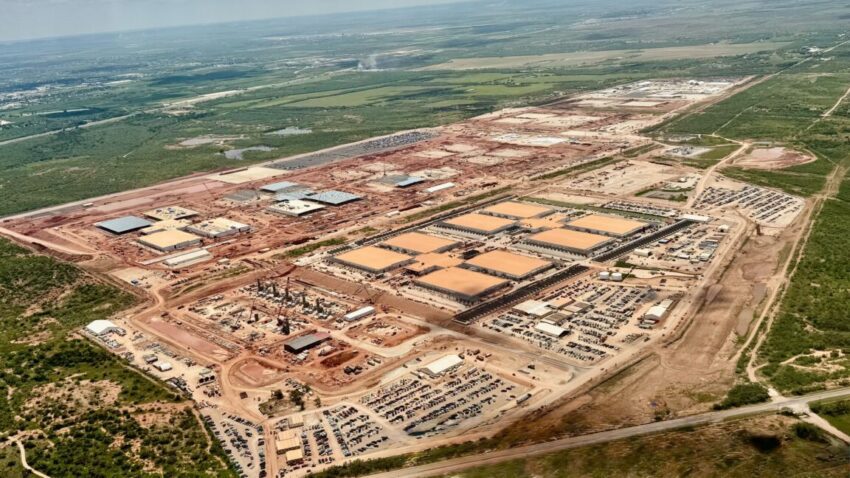
why does openai need six giant data OpenAI, in collaboration with Oracle and SoftBank, has unveiled plans for an extensive expansion of its AI data center infrastructure, which is set to significantly enhance its capabilities in handling artificial intelligence workloads.
why does openai need six giant data
Overview of the Expansion
On Tuesday, OpenAI, Oracle, and SoftBank announced the establishment of five new data center sites across the United States as part of their joint AI infrastructure initiative known as Stargate. This ambitious project aims to bolster the AI capabilities of the partnering companies, bringing the total planned capacity to nearly 7 gigawatts and an investment exceeding $400 billion over the next three years. The expansion is particularly timely, given the soaring demand for AI services, with ChatGPT alone attracting around 700 million users weekly.
Investment and Capacity Goals
The companies have set their sights on a total commitment of $500 billion and a target capacity of 10 gigawatts by the end of 2025. This goal was initially announced in January, and the current expansion is a significant step toward achieving it. The planned investment underscores the growing importance of AI technologies in various sectors, including healthcare, finance, and education.
However, the scale of this investment has raised eyebrows among industry analysts and critics, who question whether the financial structure supporting such a massive buildout can sustain itself in the long term. The concerns stem from the rapid pace of technological advancement and the potential for market saturation, which could impact the profitability of these investments.
Details of the New Data Center Sites
The five new data center locations will include three sites developed through a partnership between OpenAI and Oracle. These sites are:
- Shackelford County, Texas
- Doña Ana County, New Mexico
- An unspecified location in the Midwest
In addition to these new sites, there will be a 600-megawatt expansion near the flagship Stargate site located in Abilene, Texas. Collectively, these facilities are expected to deliver over 5.5 gigawatts of capacity, allowing the computers on site to draw up to 5.5 billion watts of electricity when operating at full load. This level of capacity is crucial for supporting the computational demands of advanced AI models and applications.
Job Creation and Economic Impact
The expansion is also anticipated to have a significant economic impact, with the companies projecting the creation of over 25,000 onsite jobs. This job creation is a critical factor, especially in the context of economic recovery post-pandemic, as it provides opportunities in various roles, including engineering, data analysis, and facility management. The influx of jobs can stimulate local economies and contribute to the overall growth of the technology sector in these regions.
Technological Implications
The need for such extensive data center infrastructure is driven by the increasing complexity and size of AI models. As AI technologies evolve, they require more computational power and storage capacity to process vast amounts of data. The planned data centers will not only support existing applications like ChatGPT but also pave the way for the development of future AI models that could further transform industries.
Moreover, the advancements in AI are not limited to just one sector. Industries such as autonomous vehicles, personalized medicine, and smart cities are all poised to benefit from the enhanced capabilities that these data centers will provide. The ability to train more sophisticated models can lead to breakthroughs in efficiency and innovation across various fields.
Challenges Ahead
Despite the optimistic outlook, the project is not without its challenges. Critics have raised concerns about the sustainability of such large-scale investments in data center infrastructure. The rapid evolution of technology means that today’s cutting-edge facilities could become obsolete in a relatively short time frame. Additionally, the environmental impact of such massive energy consumption is a pressing issue, with calls for more sustainable practices in the tech industry.
Furthermore, the competition in the AI space is intensifying, with numerous companies vying for dominance. This competitive landscape raises questions about whether OpenAI, Oracle, and SoftBank can maintain their edge as new players enter the market and existing competitors ramp up their capabilities.
Stakeholder Reactions
The announcement has elicited a range of reactions from stakeholders across the technology sector. Supporters of the initiative highlight the potential for job creation and economic growth, while also emphasizing the importance of investing in infrastructure to support the burgeoning AI industry. They argue that such investments are necessary to keep pace with global competitors and to ensure that the U.S. remains a leader in AI research and development.
On the other hand, skeptics point to the risks associated with such a large-scale investment. They caution that the financial model may not be sustainable, particularly if the anticipated demand for AI services does not materialize as expected. Additionally, concerns about the environmental impact of increased energy consumption have prompted calls for more responsible practices in data center operations.
Future Prospects
Looking ahead, the success of the Stargate project will depend on a variety of factors, including the ability to attract and retain talent, the efficiency of operations, and the capacity to adapt to changing market conditions. The companies involved will need to navigate the complexities of scaling operations while also addressing the ethical implications of AI technologies.
As the project progresses, it will be essential for OpenAI, Oracle, and SoftBank to engage with stakeholders, including local communities, regulatory bodies, and environmental organizations, to ensure that the expansion is aligned with broader societal goals. Transparency in operations and a commitment to sustainability will be crucial in building trust and securing the long-term viability of the initiative.
Conclusion
The announcement of five new AI data center sites by OpenAI, Oracle, and SoftBank marks a significant milestone in the evolution of AI infrastructure. With a planned capacity of nearly 7 gigawatts and an investment of over $400 billion, the Stargate project aims to meet the growing demand for AI services while also creating thousands of jobs. However, the challenges associated with such a massive undertaking cannot be overlooked. Stakeholders will need to carefully monitor the project’s progress and address the concerns raised to ensure its success in the rapidly evolving landscape of artificial intelligence.
Source: Original report
Was this helpful?
Last Modified: September 24, 2025 at 9:36 pm
1 views














